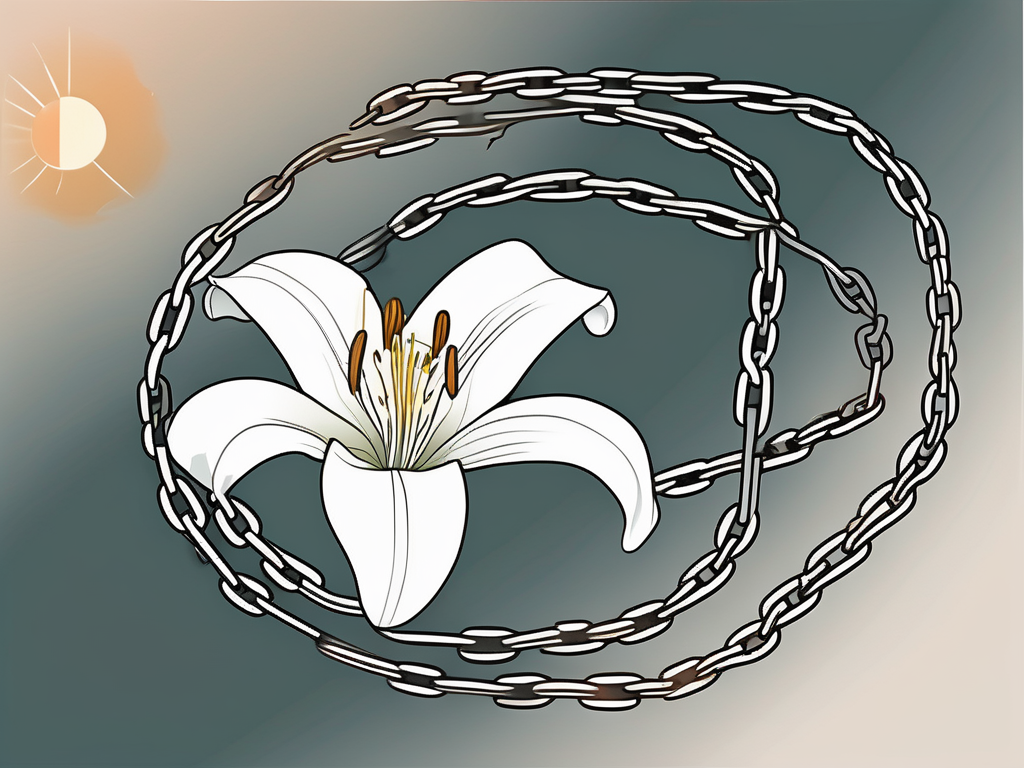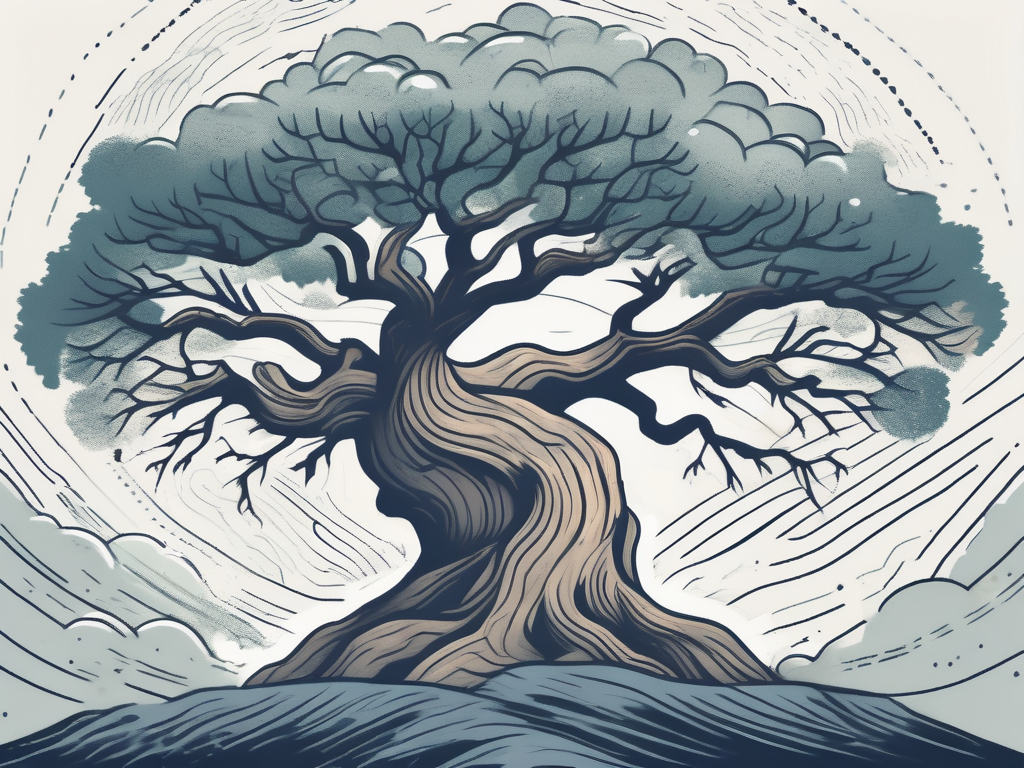Losing a loved one is one of the most challenging experiences we can face in life. The pain and grief can be overwhelming, making it difficult to find any sense of peace or strength amidst the sorrow. However, ancient philosophy, particularly Stoicism, offers valuable insights and teachings that can help us navigate the difficult journey of loss, finding solace and serenity amid the storm. In this article, we will explore the core principles of Stoicism, its approach to grief and loss, and how we can apply these teachings in our everyday lives.
Understanding Stoicism: A Brief Overview
Before delving into Stoicism’s approach to coping with the death of a loved one, it is essential to understand the philosophy itself. Stoicism originated in ancient Greece and was further developed in Rome, ultimately becoming one of the most influential philosophical schools of thought.
The Core Principles of Stoicism:
At its core, Stoicism teaches individuals to focus on what they can control and accept the things they cannot. Stoics emphasize the importance of virtue and character, believing that true happiness lies in living a life of moral excellence and inner tranquility. Stoicism also encourages individuals to embrace the present moment, finding contentment in what is and refusing to be consumed by desires for what could be.
Stoicism, with its practical approach to life, offers valuable insights and techniques for navigating the complexities of human existence. By understanding and applying its principles, individuals can cultivate resilience, wisdom, and emotional well-being.
One of the fundamental aspects of Stoicism is its perspective on death. Stoics recognize death as an inevitable part of life, a natural occurrence that all living beings will eventually face. Rather than fearing or avoiding the concept of death, Stoics encourage individuals to accept its existence and integrate it into their worldview.
Stoicism teaches that death is not something to be feared but rather an opportunity to reflect on the transitory nature of human existence. By acknowledging the inevitability of death, Stoics strive to live each day fully and appreciate the present moment. This perspective allows individuals to find solace and meaning in the face of mortality.
Furthermore, Stoicism emphasizes the importance of maintaining a sense of inner tranquility and equanimity in the face of life’s challenges, including the loss of a loved one. Stoics believe that by accepting the natural cycles of life, including death, individuals can cultivate a sense of peace and resilience.
Stoic practices, such as memento mori (remembering death) and negative visualization (contemplating the loss of loved ones), can help individuals prepare themselves emotionally for the inevitable. By regularly reflecting on the transient nature of life and the impermanence of relationships, Stoics aim to develop a deeper appreciation for the present moment and foster a sense of gratitude for the time they have with their loved ones.
Ultimately, Stoicism offers a unique perspective on death, encouraging individuals to confront and accept the reality of mortality. By integrating the concept of death into their philosophy of life, Stoics strive to live with greater wisdom, resilience, and appreciation for the fleeting nature of human existence.
The Stoic Approach to Grief and Loss
Embracing the Inevitability of Death:
When faced with the death of a loved one, Stoic philosophy urges us to acknowledge and embrace the reality of death. While grief is a natural response, Stoics remind us to avoid being consumed by sorrow or resisting the finality of death. Accepting the inevitability of death can help us find peace amidst the pain, allowing us to focus on cherishing the memories and legacies left by our loved ones.
Furthermore, Stoicism encourages us to contemplate the transience of life and the fragility of our existence. By recognizing that death is an integral part of the human experience, we can cultivate a deeper appreciation for the moments we share with our loved ones. This awareness can serve as a powerful reminder to live fully and authentically, making the most of the time we have.
Detachment and Acceptance: Stoic Tools for Coping:
Stoics emphasize the importance of distancing ourselves from external events and focusing on what we can control – our own thoughts and actions. When experiencing grief, this principle can be applied by accepting the reality of loss and acknowledging our emotions without being consumed by them. Stoicism teaches us that while we may not have control over the circumstances of death, we have control over our response to it.
Moreover, Stoicism encourages us to cultivate a sense of detachment from the external world. By recognizing that everything in life is impermanent, including the people we hold dear, we can develop a mindset that is resilient in the face of loss. This detachment does not mean suppressing our emotions or denying the pain of grief; rather, it allows us to approach our emotions with a sense of equanimity and acceptance.
Stoic philosophy also offers practical tools for coping with grief. One such tool is the practice of negative visualization, which involves imagining the loss of our loved ones before it actually happens. While this may seem counterintuitive, it allows us to mentally prepare ourselves for the inevitable, reducing the shock and overwhelming emotions that often accompany loss. By contemplating the worst-case scenario, we can develop a sense of resilience and fortitude, enabling us to navigate the grieving process with greater strength.
Additionally, Stoics advocate for the practice of self-reflection and introspection as a means of understanding and processing our emotions. By examining our thoughts and beliefs about death, we can uncover any irrational or unhelpful patterns of thinking that may be exacerbating our grief. This self-awareness empowers us to challenge and reframe our perspectives, ultimately leading to a more constructive and healing response to loss.
Finding Strength in Stoic Teachings
The Role of Virtue and Character:
One of the fundamental teachings of Stoicism is that true happiness comes from living a virtuous life. Stoics believe that virtue is the key to a fulfilling and meaningful existence. When faced with the death of a loved one, Stoics encourage individuals to draw strength from their own virtues and character. Emulating the qualities that we admire in our loved ones – such as kindness, resilience, or compassion – can help us navigate the grieving process with greater inner strength and resilience.
For example, if our loved one was known for their kindness and generosity, we can strive to embody those qualities in our own lives. By actively practicing kindness towards others, we not only honor their memory but also find solace in the positive impact we can have on the world. This focus on virtue and character allows us to find strength in the midst of loss, as we channel our grief into actions that align with our values.
Stoicism and Resilience: Building Inner Strength:
Stoicism emphasizes the cultivation of resilience in the face of adversity. While grief can be an overwhelming and prolonged experience, Stoic teachings guide us towards developing emotional resilience that allows us to mourn our loved ones while finding the strength to carry on.
One of the key principles of Stoicism is the distinction between what is within our control and what is not. By training our minds to focus on what is within our control – our thoughts, actions, and attitudes – we can gradually build resilience and find solace in the midst of loss. Stoics believe that external events, such as the death of a loved one, are beyond our control. However, our response to these events is within our control.
By accepting the reality of loss and acknowledging our emotions, we can begin the process of healing and finding strength. Stoics encourage individuals to practice self-reflection and introspection, allowing us to understand our own emotions and thoughts. Through this process, we can develop a deeper understanding of ourselves and our own capacity for resilience.
In addition, Stoicism teaches us to focus on the present moment and to let go of attachments to the past or worries about the future. By staying grounded in the present, we can find solace and strength in the midst of grief. This practice of mindfulness allows us to fully experience our emotions without being overwhelmed by them, enabling us to navigate the grieving process with greater resilience.
In conclusion, Stoic teachings provide valuable insights and guidance for finding strength in the face of loss. By focusing on virtue and character, we can honor the memory of our loved ones while finding solace in our own actions. Through the cultivation of resilience and the practice of mindfulness, we can navigate the grieving process with greater inner strength and find comfort in the midst of sorrow.
Achieving Serenity through Stoicism
The Power of Perspective:
Stoicism teaches us the transformative power of our perspectives and how they shape our experience of the world. When faced with the death of a loved one, adopting a Stoic perspective allows us to see death as a natural part of the human experience, rather than an unfair or tragic event. By shifting our perspective, we can find solace and peace in accepting death as a part of the broader cycles of life.
Furthermore, Stoicism encourages us to reflect on the impermanence of all things. By recognizing that everything in life is subject to change, we can develop a sense of detachment from external circumstances. This detachment allows us to navigate the ups and downs of life with equanimity, finding serenity in the midst of chaos.
Tranquility and Peace: The Stoic’s Ultimate Goal:
Perhaps one of the most significant contributions of Stoicism is its emphasis on achieving inner tranquility and peace. Stoics believe that by practicing acceptance, embracing virtues, and cultivating resilience, we can find a profound sense of serenity even in the face of grief and loss. Rather than seeking external validation or relying on circumstances for happiness, Stoicism teaches us to look within ourselves for a lasting sense of peace.
In addition to cultivating inner tranquility, Stoicism also encourages us to live in harmony with nature. Stoics believe that by aligning our actions and desires with the natural order of the universe, we can find a sense of purpose and fulfillment. This alignment allows us to let go of unnecessary desires and attachments, freeing ourselves from the constant pursuit of external pleasures and material possessions.
Furthermore, Stoicism teaches us the importance of virtue in achieving serenity. By cultivating virtues such as wisdom, courage, and justice, we can align ourselves with the highest ideals of humanity. These virtues serve as guiding principles in our lives, helping us make decisions that are in line with our values and leading to a sense of inner peace.
In conclusion, Stoicism offers us a profound philosophy for achieving serenity in our lives. By shifting our perspective, practicing acceptance, embracing virtues, and aligning ourselves with nature, we can find a lasting sense of peace and tranquility. Stoicism teaches us that true happiness comes from within, and by cultivating our inner world, we can navigate the challenges of life with grace and equanimity.
Applying Stoic Principles in Everyday Life
Practical Exercises for Embracing Stoicism:
Incorporating Stoic practices into our everyday lives can greatly assist us in finding strength and serenity in the wake of losing a loved one. Simple exercises such as journaling, meditation, and reflecting on virtues can help us develop a Stoic mindset while providing a practical outlet for our feelings of grief.
Journaling, for example, allows us to explore our thoughts and emotions in a structured and introspective manner. By writing down our experiences and feelings, we can gain a deeper understanding of ourselves and the impact of loss on our lives. This process of self-reflection can be a powerful tool in the healing process, as it allows us to process our emotions and find meaning in the midst of pain.
Meditation, on the other hand, helps us cultivate a sense of inner calm and stillness. By focusing our attention on the present moment and observing our thoughts without judgment, we can learn to detach ourselves from the intense emotions that often accompany grief. Through regular meditation practice, we can develop the ability to observe our thoughts and emotions from a place of equanimity, allowing us to navigate the ups and downs of grief with greater resilience.
Reflecting on virtues, such as courage, wisdom, and compassion, can also be a powerful practice in embracing Stoicism. By consciously striving to embody these virtues in our daily lives, we can cultivate a sense of purpose and meaning in the face of loss. For example, practicing courage may involve facing our grief head-on and allowing ourselves to fully experience the pain, rather than avoiding or suppressing it. Similarly, practicing compassion towards ourselves and others can help us find solace and connection amidst the turmoil of grief.
The Path to Stoic Mindfulness and Serenity:
Living in alignment with Stoic principles requires dedication and practice. Through cultivating mindfulness and embracing the core tenets of Stoicism, we can gradually develop the inner resilience necessary to navigate the complicated emotions associated with the death of a loved one. By incorporating Stoic teachings into our daily routines, we can find solace, strength, and serenity in the face of grief.
One of the key tenets of Stoicism is the recognition of the impermanence of all things, including life itself. By acknowledging the inevitability of death, we can develop a deeper appreciation for the present moment and the relationships we have. This awareness can motivate us to make the most of our time with loved ones and to cherish the memories we create together.
Another core principle of Stoicism is the focus on virtue and moral character. By striving to live in accordance with virtues such as wisdom, justice, and temperance, we can cultivate a sense of inner peace and integrity. In the face of loss, practicing these virtues can help us maintain our composure and make decisions that align with our values, even in the midst of emotional turmoil.
Furthermore, Stoicism emphasizes the importance of accepting what is beyond our control and focusing our energy on what we can influence. When dealing with the death of a loved one, it can be easy to get caught up in feelings of grief and powerlessness. However, by shifting our focus to the things we can control, such as our thoughts, actions, and attitudes, we can regain a sense of agency and empowerment.
In conclusion, Stoicism offers valuable teachings and insights to help us navigate the profound pain and grief that come with the death of a loved one. By understanding the core principles of Stoicism, embracing the inevitability of death, finding strength in virtues, and achieving inner tranquility, we can begin the journey towards healing and ultimately finding peace amidst the storm of loss.












